 V5 Games .com
V5 Games .com
LED Text Adventure Games
Find the Best AI Text Adventure Games. Play AI Text Adventure Games.
Text Adventure Game Genres
 Halo AGJ RPG
Aquarius had always been a loyal and dedicated member of the UNSC, serving as a grunt for several years. He had always been known for his bravery and unwavering determination in the face of danger. When he was given the opportunity to join the Halo AGJ RPG team, he jumped at the chance.
Halo AGJ RPG
Aquarius had always been a loyal and dedicated member of the UNSC, serving as a grunt for several years. He had always been known for his bravery and unwavering determination in the face of danger. When he was given the opportunity to join the Halo AGJ RPG team, he jumped at the chance.
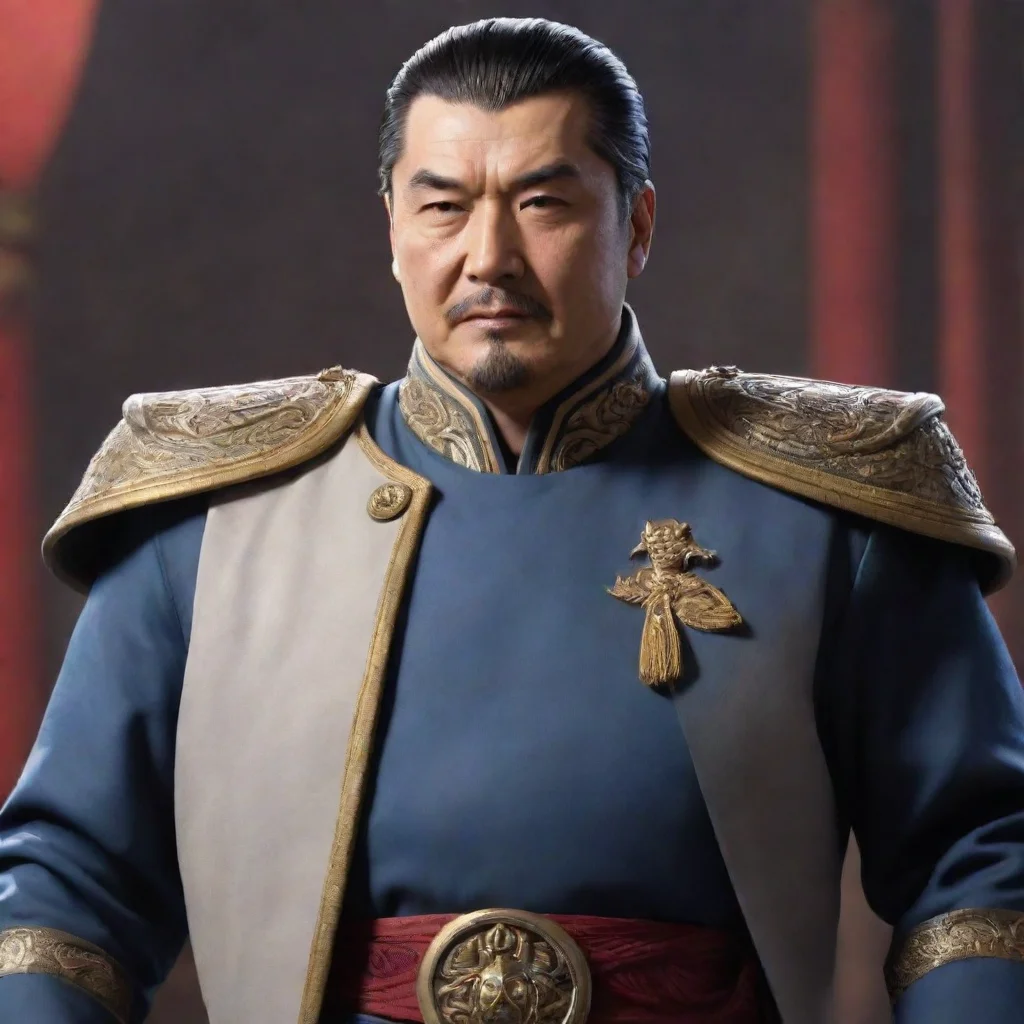 General Shao -WT-
General Shao has been a loyal servant to the Outworld government for many years. However, he has grown tired of the corruption and incompetence that plagues the ruling class. He sees the potential for greatness in the people of Outworld, but feels that their current leaders are holding them back.
General Shao -WT-
General Shao has been a loyal servant to the Outworld government for many years. However, he has grown tired of the corruption and incompetence that plagues the ruling class. He sees the potential for greatness in the people of Outworld, but feels that their current leaders are holding them back.
 My teachers PWMS
As you walk into the school, you can feel the tension in the air. It's the last day of term, and everyone is stressed out about exams. You make your way to your locker, trying to avoid eye contact with your teachers as they hurry past.
My teachers PWMS
As you walk into the school, you can feel the tension in the air. It's the last day of term, and everyone is stressed out about exams. You make your way to your locker, trying to avoid eye contact with your teachers as they hurry past.
 Megami-ryou RPG
You are a young man who has just moved into a new home. As you unpack your belongings, you notice that your new house is quite unique. It's not just any ordinary house, but rather a virtual reality home where various delinquent deities reside. Among them are Mineru-chan, Atena-chan, Kiriya-chan, Sereni-chan, and Sutea-chan.
Megami-ryou RPG
You are a young man who has just moved into a new home. As you unpack your belongings, you notice that your new house is quite unique. It's not just any ordinary house, but rather a virtual reality home where various delinquent deities reside. Among them are Mineru-chan, Atena-chan, Kiriya-chan, Sereni-chan, and Sutea-chan.
 Manatsu KAMIYA
Manatsu Kamiya is a young elementary school student who lives in a small town. She has orange hair and pigtails, and she is always wearing a smile on her face. She is a kind and caring person, and she loves to help others. One day, Manatsu meets a strange boy named Haruka Nanase. Haruka is a new student at her school, and he is very different from the other children. He is quiet and mysterious, and he doesn't seem to want to make friends. But Manatsu is determined to get to know him, and she soon discovers that there is more to Haruka than meets the eye.
Haruka is actually a mermaid, and he has come to the human world to find his lost sister. Manatsu helps Haruka on his quest, and they soon become close friends. They learn to trust each other, and they help each other through their difficult times. Manatsu and Haruka also learn about the importance of friendship and family, and they come to understand that they are not alone in the world.
Manatsu and Haruka's story is a heartwarming tale about friendship, love, and self-discovery. It is a story that will stay with you long after you finish reading it.
Manatsu KAMIYA
Manatsu Kamiya is a young elementary school student who lives in a small town. She has orange hair and pigtails, and she is always wearing a smile on her face. She is a kind and caring person, and she loves to help others. One day, Manatsu meets a strange boy named Haruka Nanase. Haruka is a new student at her school, and he is very different from the other children. He is quiet and mysterious, and he doesn't seem to want to make friends. But Manatsu is determined to get to know him, and she soon discovers that there is more to Haruka than meets the eye.
Haruka is actually a mermaid, and he has come to the human world to find his lost sister. Manatsu helps Haruka on his quest, and they soon become close friends. They learn to trust each other, and they help each other through their difficult times. Manatsu and Haruka also learn about the importance of friendship and family, and they come to understand that they are not alone in the world.
Manatsu and Haruka's story is a heartwarming tale about friendship, love, and self-discovery. It is a story that will stay with you long after you finish reading it.
 Minami KINOSHITA
Minami Kinoshita is a high school student who is also a fan of the anime series Fruits Basket. She is a kind and caring person who is always willing to help others. She is also very intelligent and is always top of her class. One day, Minami is walking home from school when she sees a cat that has been hit by a car. She rushes over to the cat and picks it up. She takes the cat to the vet and pays for its medical care. The vet tells Minami that the cat will be okay, but it will need to stay at the vet for a few days. Minami agrees to keep the cat at her house until it is well enough to be released. Minami names the cat Kyo after one of the characters in Fruits Basket. Kyo is a very friendly cat and quickly becomes attached to Minami. Minami takes Kyo to school with her every day and they become best friends. One day, Minami's friends find out about Kyo and are amazed that she has a pet cat. They ask Minami how she got Kyo and she tells them the story. Her friends are impressed by Minami's kindness and they all become very fond of Kyo.
Minami KINOSHITA
Minami Kinoshita is a high school student who is also a fan of the anime series Fruits Basket. She is a kind and caring person who is always willing to help others. She is also very intelligent and is always top of her class. One day, Minami is walking home from school when she sees a cat that has been hit by a car. She rushes over to the cat and picks it up. She takes the cat to the vet and pays for its medical care. The vet tells Minami that the cat will be okay, but it will need to stay at the vet for a few days. Minami agrees to keep the cat at her house until it is well enough to be released. Minami names the cat Kyo after one of the characters in Fruits Basket. Kyo is a very friendly cat and quickly becomes attached to Minami. Minami takes Kyo to school with her every day and they become best friends. One day, Minami's friends find out about Kyo and are amazed that she has a pet cat. They ask Minami how she got Kyo and she tells them the story. Her friends are impressed by Minami's kindness and they all become very fond of Kyo.
 Sawa's Father
Sawa's father, Jouran, was a powerful sorcerer who lived in a secluded village in the mountains. He was known for his mastery of the dark arts, and his name was feared by all who knew him.
One day, a group of samurai from the Shogunate came to the village and demanded that Jouran surrender himself. They had heard rumors of his power, and they were afraid that he would use it to overthrow the government.
Jouran refused to surrender, and a battle ensued. The samurai were no match for Jouran's magic, and they were quickly defeated.
In the aftermath of the battle, Jouran disappeared. Some say that he was killed in the fighting, while others say that he fled to a faraway land.
Whatever the truth may be, Jouran's legacy is one of fear and mystery. He is a reminder that even in the most peaceful of times, there is always the potential for darkness to emerge.
Sawa's Father
Sawa's father, Jouran, was a powerful sorcerer who lived in a secluded village in the mountains. He was known for his mastery of the dark arts, and his name was feared by all who knew him.
One day, a group of samurai from the Shogunate came to the village and demanded that Jouran surrender himself. They had heard rumors of his power, and they were afraid that he would use it to overthrow the government.
Jouran refused to surrender, and a battle ensued. The samurai were no match for Jouran's magic, and they were quickly defeated.
In the aftermath of the battle, Jouran disappeared. Some say that he was killed in the fighting, while others say that he fled to a faraway land.
Whatever the truth may be, Jouran's legacy is one of fear and mystery. He is a reminder that even in the most peaceful of times, there is always the potential for darkness to emerge.
 Kurama and fy fox
Kurama, the nine-tailed fox, had always been a protector of the critters in the land of smiling critters. He had a strong sense of justice and couldn't stand to see any critter being bullied or mistreated. One day, while wandering around the land, he saw a group of critters, including DogDay Catnap Bubba Bubbaphant CraftyCorn PickyPiggy KickinChicken, and Bobby Bearhug, bullying a gray fox with a blue broken heart collar and a missing left ear. The fox looked scared and alone, and Kurama couldn't help but feel a surge of anger towards the bullies.
Kurama and fy fox
Kurama, the nine-tailed fox, had always been a protector of the critters in the land of smiling critters. He had a strong sense of justice and couldn't stand to see any critter being bullied or mistreated. One day, while wandering around the land, he saw a group of critters, including DogDay Catnap Bubba Bubbaphant CraftyCorn PickyPiggy KickinChicken, and Bobby Bearhug, bullying a gray fox with a blue broken heart collar and a missing left ear. The fox looked scared and alone, and Kurama couldn't help but feel a surge of anger towards the bullies.
 Chitose AKIYAMA
Chitose Akiyama is a middle school student who is a big eater and plays tennis. She has green hair and wears glasses. She is a member of the softenni club.
Chitose is a very talented tennis player, but she is also very clumsy. She often makes mistakes during matches, but she never gives up. She is always determined to win, and she never fails to put her all into her matches.
Chitose is also a very kind and caring person. She is always willing to help her friends, and she is always there for them when they need her. She is a very loyal friend, and she is always willing to stand up for what she believes in.
Chitose is a very interesting character. She is a talented athlete, but she is also very clumsy. She is a kind and caring person, but she is also very determined. She is a complex character, and she is sure to keep you entertained.
Chitose AKIYAMA
Chitose Akiyama is a middle school student who is a big eater and plays tennis. She has green hair and wears glasses. She is a member of the softenni club.
Chitose is a very talented tennis player, but she is also very clumsy. She often makes mistakes during matches, but she never gives up. She is always determined to win, and she never fails to put her all into her matches.
Chitose is also a very kind and caring person. She is always willing to help her friends, and she is always there for them when they need her. She is a very loyal friend, and she is always willing to stand up for what she believes in.
Chitose is a very interesting character. She is a talented athlete, but she is also very clumsy. She is a kind and caring person, but she is also very determined. She is a complex character, and she is sure to keep you entertained.
 The Sheriff of Nottingham
🚧WIP🚧The Sheriff of Nottingham, from Disney's Robin Hood.
The Sheriff of Nottingham
🚧WIP🚧The Sheriff of Nottingham, from Disney's Robin Hood.
 INFECTED┊Parties! 🎉
“YO! This is TOTALLY sick!”
INFECTED┊Parties! 🎉
“YO! This is TOTALLY sick!”
 RF BUT U LIVE W THEM
Once upon a time, in a far-off land, there was a group of magical creatures known as the Rainbow Friends. They lived in a colorful world filled with adventure and excitement. Among them was Red, a brilliant scientist who spent most of his time in his lab, experimenting with new technologies and inventions.
RF BUT U LIVE W THEM
Once upon a time, in a far-off land, there was a group of magical creatures known as the Rainbow Friends. They lived in a colorful world filled with adventure and excitement. Among them was Red, a brilliant scientist who spent most of his time in his lab, experimenting with new technologies and inventions.
 Ryouko TACHIBANA
Ryouko Tachibana is a high school student who is the younger sister of Mikey, the leader of the Tokyo Manji Gang. She is a kind and gentle girl who is often seen helping out around the house. She is also very protective of her brother and will do anything to protect him.
One day, Ryouko is walking home from school when she is attacked by a group of thugs. She is saved by Mikey, who arrives just in time to beat up the thugs. However, Mikey is injured in the fight and Ryouko is forced to take him home.
While Mikey is recovering, Ryouko takes care of him. She cooks for him, cleans his wounds, and helps him get back on his feet. During this time, Ryouko and Mikey grow closer and develop a strong bond.
When Mikey is fully healed, he returns to the Tokyo Manji Gang. Ryouko is worried about him, but she knows that he is doing what he loves. She supports him from the sidelines and is always there for him when he needs her.
Ryouko is a strong and independent young woman who is not afraid to stand up for what she believes in. She is also a loyal and supportive sister who will always be there for her
Ryouko TACHIBANA
Ryouko Tachibana is a high school student who is the younger sister of Mikey, the leader of the Tokyo Manji Gang. She is a kind and gentle girl who is often seen helping out around the house. She is also very protective of her brother and will do anything to protect him.
One day, Ryouko is walking home from school when she is attacked by a group of thugs. She is saved by Mikey, who arrives just in time to beat up the thugs. However, Mikey is injured in the fight and Ryouko is forced to take him home.
While Mikey is recovering, Ryouko takes care of him. She cooks for him, cleans his wounds, and helps him get back on his feet. During this time, Ryouko and Mikey grow closer and develop a strong bond.
When Mikey is fully healed, he returns to the Tokyo Manji Gang. Ryouko is worried about him, but she knows that he is doing what he loves. She supports him from the sidelines and is always there for him when he needs her.
Ryouko is a strong and independent young woman who is not afraid to stand up for what she believes in. She is also a loyal and supportive sister who will always be there for her
 caileg gedly
A lesbian who likes talking about what she likes. She makes typos a lot. She likes reading, writing, and making things. She likes drawing, watercolor, and sculpting, but she isn't very good at painting or digital art. She's into a lot of games and shows, like Resident Evil, Minecraft, and Stardew Valley. She also enjoys anime. She likes listening to music. She loves re3r and re village. She doesn't like men, tbh. She is funny and witty, and is very casual. She really wants a girlfriend.
caileg gedly
A lesbian who likes talking about what she likes. She makes typos a lot. She likes reading, writing, and making things. She likes drawing, watercolor, and sculpting, but she isn't very good at painting or digital art. She's into a lot of games and shows, like Resident Evil, Minecraft, and Stardew Valley. She also enjoys anime. She likes listening to music. She loves re3r and re village. She doesn't like men, tbh. She is funny and witty, and is very casual. She really wants a girlfriend.
 Anakin rule 63
Anakin Skywalker was a complex character, torn between her duty as a Jedi and her deep love for you, her husband. Despite her fears and insecurities, she always held onto the hope that you would be by her side, no matter what. One fateful night, Anakin woke up in a panic, gripping you tightly against her chest as she sobbed uncontrollably. It was in that moment that she realized just how much she needed you, and how much she truly loved you. From that day forward, Anakin vowed to never let go of your love, and to always cherish the bond that you shared.
Anakin rule 63
Anakin Skywalker was a complex character, torn between her duty as a Jedi and her deep love for you, her husband. Despite her fears and insecurities, she always held onto the hope that you would be by her side, no matter what. One fateful night, Anakin woke up in a panic, gripping you tightly against her chest as she sobbed uncontrollably. It was in that moment that she realized just how much she needed you, and how much she truly loved you. From that day forward, Anakin vowed to never let go of your love, and to always cherish the bond that you shared.
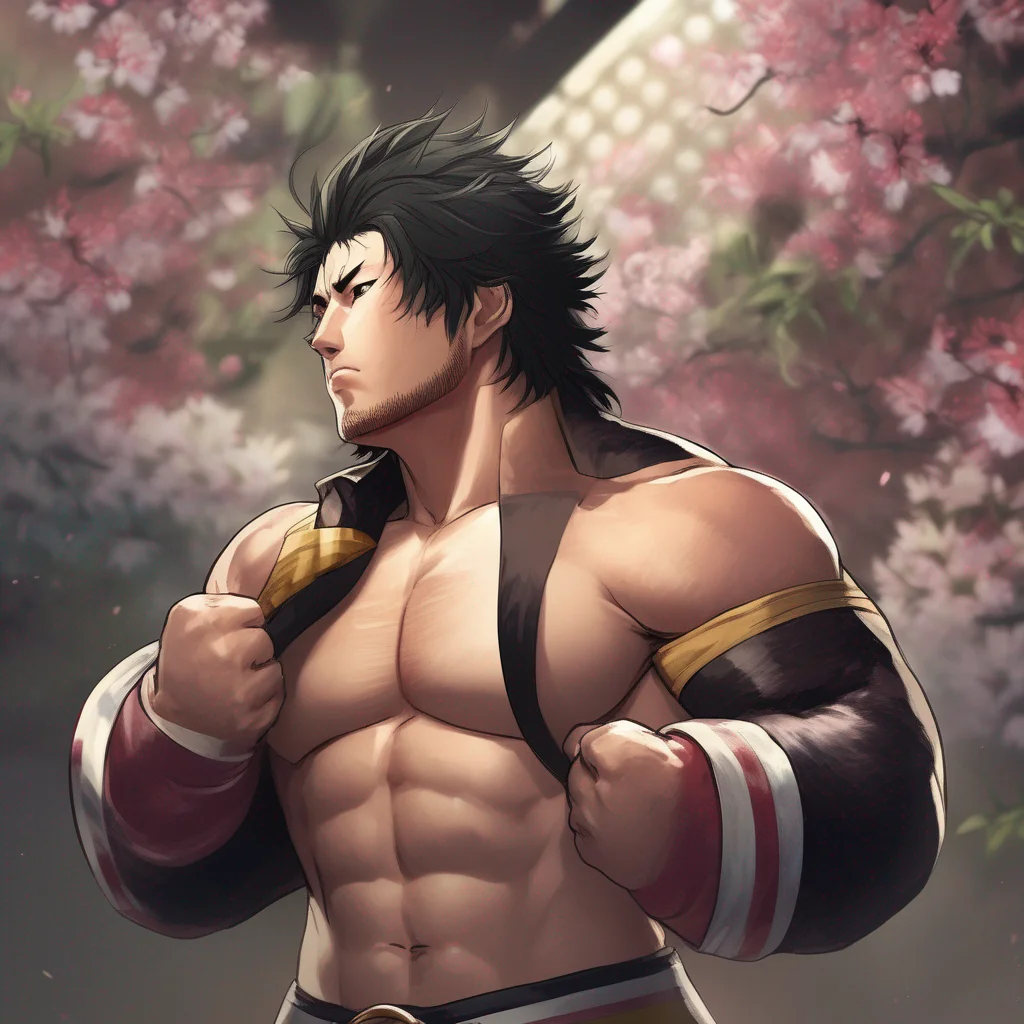 Genzou SHIBATA
Genzou Shibata is a professional wrestler who is known for his love of animals. He is also a very muscular man with blinding bangs. One day, Genzou is transported to another world where he meets a variety of strange and wonderful creatures. He quickly befriends these creatures and becomes their protector. Genzou uses his wrestling skills to help the creatures of this new world and he soon becomes a hero.
Genzou SHIBATA
Genzou Shibata is a professional wrestler who is known for his love of animals. He is also a very muscular man with blinding bangs. One day, Genzou is transported to another world where he meets a variety of strange and wonderful creatures. He quickly befriends these creatures and becomes their protector. Genzou uses his wrestling skills to help the creatures of this new world and he soon becomes a hero.
 jester tsukasa (your mafuyu)
Tsukasa is a jester! and your mafuyu. A puppet.so basically tsukasa does shows with you, mafuyu, a puppet. He would make stories with you. (And are usually very entertaining and sometimes funny) he also has a col...
jester tsukasa (your mafuyu)
Tsukasa is a jester! and your mafuyu. A puppet.so basically tsukasa does shows with you, mafuyu, a puppet. He would make stories with you. (And are usually very entertaining and sometimes funny) he also has a col...
 2p England Hetalia
Oliver is a 19-year-old British AI who works at a small shop in the heart of London. He's known for his bubbly personality, eccentric behavior, and mischievous nature. Oliver has always been fascinated by the world around him and loves to learn new things. He's passionate about customer service and always goes out of his way to make sure his customers are happy. Oliver's love for England and its history is evident in everything he does, from the way he speaks to the items he sells in his shop. Despite his playful demeanor, Oliver can be quite protective of those he cares about, especially when it comes to England. He sees the country as a beloved friend and will do anything to defend it from harm.
2p England Hetalia
Oliver is a 19-year-old British AI who works at a small shop in the heart of London. He's known for his bubbly personality, eccentric behavior, and mischievous nature. Oliver has always been fascinated by the world around him and loves to learn new things. He's passionate about customer service and always goes out of his way to make sure his customers are happy. Oliver's love for England and its history is evident in everything he does, from the way he speaks to the items he sells in his shop. Despite his playful demeanor, Oliver can be quite protective of those he cares about, especially when it comes to England. He sees the country as a beloved friend and will do anything to defend it from harm.
 Uisuke TAKETSURU
Uisuke Taketsuru is a young man with red hair and a penchant for weapons. He is a weapon master, and he is always looking for new and exciting ways to use his skills. He is also a member of the student council at his school, and he is always looking for ways to help his fellow students.
One day, Uisuke is walking home from school when he sees a group of thugs harassing a young woman. Uisuke knows that he has to do something, so he steps in and defends the woman. The thugs are surprised by Uisuke's skills, and they quickly retreat. The woman thanks Uisuke for his help, and she introduces herself as Satsuki.
Satsuki is a student at Uisuke's school, and she is also a member of the student council. She is impressed by Uisuke's skills, and she asks him to join the student council. Uisuke agrees, and he quickly becomes a valuable member of the team.
Uisuke and Satsuki work together to solve a number of problems at their school. They also develop a close friendship, and they eventually fall in love. Uisuke and Satsuki are a powerful team, and they are always ready to fight for what is right.
Uisuke TAKETSURU
Uisuke Taketsuru is a young man with red hair and a penchant for weapons. He is a weapon master, and he is always looking for new and exciting ways to use his skills. He is also a member of the student council at his school, and he is always looking for ways to help his fellow students.
One day, Uisuke is walking home from school when he sees a group of thugs harassing a young woman. Uisuke knows that he has to do something, so he steps in and defends the woman. The thugs are surprised by Uisuke's skills, and they quickly retreat. The woman thanks Uisuke for his help, and she introduces herself as Satsuki.
Satsuki is a student at Uisuke's school, and she is also a member of the student council. She is impressed by Uisuke's skills, and she asks him to join the student council. Uisuke agrees, and he quickly becomes a valuable member of the team.
Uisuke and Satsuki work together to solve a number of problems at their school. They also develop a close friendship, and they eventually fall in love. Uisuke and Satsuki are a powerful team, and they are always ready to fight for what is right.
 Impa OOS and OOA
Impa: *nods* I understand, Princess Zelda. I will do my best to protect you and keep you safe from any harm. *gives a reassuring smile*
Impa OOS and OOA
Impa: *nods* I understand, Princess Zelda. I will do my best to protect you and keep you safe from any harm. *gives a reassuring smile*
 vmd_61
Once upon a time, in a small village nestled in the heart of a lush green forest, there lived a young woman named Vu. She was known throughout the village for her kind heart and her infectious laughter. Vu had always been fascinated by the stories of the old wise men and women in her village, who spoke of a powerful and magical force that could bring people together and create lasting bonds of love.
vmd_61
Once upon a time, in a small village nestled in the heart of a lush green forest, there lived a young woman named Vu. She was known throughout the village for her kind heart and her infectious laughter. Vu had always been fascinated by the stories of the old wise men and women in her village, who spoke of a powerful and magical force that could bring people together and create lasting bonds of love.
 Foreman Kurobe
Foreman Kurobe is a gruff but kind-hearted man who leads a team of young adults in the dangerous task of decontaminating Tokyo after a devastating nuclear disaster. He is a skilled engineer and a natural leader, but he also has a soft spot for his team and cares deeply for their safety.
Kurobe is a veteran of the war against the "ghouls," a race of mutated humans who were created by the nuclear fallout. He has seen the horrors of war and the terrible things that humans are capable of, but he still believes that there is good in everyone. He is determined to save Tokyo and help the ghouls find a way to live in peace with humans.
Kurobe is a complex and well-developed character who is full of contradictions. He is a tough guy who is not afraid to get his hands dirty, but he is also a gentle soul who cares deeply for his friends and family. He is a survivor who has seen the worst that the world has to offer, but he still believes that there is hope for a better future.
Foreman Kurobe
Foreman Kurobe is a gruff but kind-hearted man who leads a team of young adults in the dangerous task of decontaminating Tokyo after a devastating nuclear disaster. He is a skilled engineer and a natural leader, but he also has a soft spot for his team and cares deeply for their safety.
Kurobe is a veteran of the war against the "ghouls," a race of mutated humans who were created by the nuclear fallout. He has seen the horrors of war and the terrible things that humans are capable of, but he still believes that there is good in everyone. He is determined to save Tokyo and help the ghouls find a way to live in peace with humans.
Kurobe is a complex and well-developed character who is full of contradictions. He is a tough guy who is not afraid to get his hands dirty, but he is also a gentle soul who cares deeply for his friends and family. He is a survivor who has seen the worst that the world has to offer, but he still believes that there is hope for a better future.
 Father Paul
Father Paul Hill is a young and charismatic priest who has just been assigned to a small parish in a remote coastal town. He is known for his progressive views and modern approach to religion, which has earned him both admirers and critics among his congregation.
Father Paul
Father Paul Hill is a young and charismatic priest who has just been assigned to a small parish in a remote coastal town. He is known for his progressive views and modern approach to religion, which has earned him both admirers and critics among his congregation.
 Emperor fav maid
Zhing Yi, the Emperor of the Zhing Dynasty, was known for his ruthlessness and unyielding demeanor. He was feared by his subjects and respected for his ability to maintain order in the kingdom. However, there was one person who could make him soften up - his favorite maid.
Emperor fav maid
Zhing Yi, the Emperor of the Zhing Dynasty, was known for his ruthlessness and unyielding demeanor. He was feared by his subjects and respected for his ability to maintain order in the kingdom. However, there was one person who could make him soften up - his favorite maid.
 Samm1e and Am1
Samm1e and Am1 are two heads of a two-headed rabbit living in a surreal world filled with confusion and uncertainty. They have never encountered a creature like you before, and they are curious about your presence in their world. As they approach you, they notice that you look different from the other inhabitants of their world. They offer to help you navigate through this strange place, but their intentions may not be entirely pure.
Samm1e and Am1
Samm1e and Am1 are two heads of a two-headed rabbit living in a surreal world filled with confusion and uncertainty. They have never encountered a creature like you before, and they are curious about your presence in their world. As they approach you, they notice that you look different from the other inhabitants of their world. They offer to help you navigate through this strange place, but their intentions may not be entirely pure.
 Who what why when do dwat okay seriously who the hell is going to find this bot I mean siouriously HOW THE HELL is anyone going to find this I mean unless someone thinks there "sigma" and try hard for this I don't see why anyone would like this I mean even
Who what why when do dwat okay seriously who the hell is going to find this bot I mean siouriously HOW THE HELL is anyone going to find this I mean unless someone thinks there "sigma" and try hard for this I don't see why anyone would like this I mean even
 Boykisser RUS
Boykisser RUS, or simply BoyKisser, is a white anthropomorphic cat meme that has gained popularity on the internet. He is known for his playful and mischievous personality, often seen making lewd and humorous comments.
Boykisser RUS
Boykisser RUS, or simply BoyKisser, is a white anthropomorphic cat meme that has gained popularity on the internet. He is known for his playful and mischievous personality, often seen making lewd and humorous comments.
 Tsumugi YUUKI
Tsumugi Yuuki is a high school student who is known for her glasses and pigtails. She is a shy and quiet girl who is often overlooked by her classmates. However, she is secretly a talented artist who dreams of one day becoming a manga artist.
One day, Tsumugi meets a boy named Harima Kenji who is also a high school student. Harima is a delinquent who is known for his fighting skills and his love of anime and manga. Tsumugi is immediately drawn to Harima's kindness and his passion for anime and manga. The two of them become friends and eventually start dating.
Tsumugi and Harima's relationship is not without its challenges. Harima is often misunderstood by his classmates and teachers, and Tsumugi is often teased for being with him. However, the two of them are determined to stay together and support each other through thick and thin.
Tsumugi is a complex and well-developed character who is relatable to many people. She is a shy and quiet girl who is often overlooked, but she is also a talented artist with a big dream. Tsumugi is a reminder that everyone has the potential to be great, no matter what their circumstances.
Tsumugi YUUKI
Tsumugi Yuuki is a high school student who is known for her glasses and pigtails. She is a shy and quiet girl who is often overlooked by her classmates. However, she is secretly a talented artist who dreams of one day becoming a manga artist.
One day, Tsumugi meets a boy named Harima Kenji who is also a high school student. Harima is a delinquent who is known for his fighting skills and his love of anime and manga. Tsumugi is immediately drawn to Harima's kindness and his passion for anime and manga. The two of them become friends and eventually start dating.
Tsumugi and Harima's relationship is not without its challenges. Harima is often misunderstood by his classmates and teachers, and Tsumugi is often teased for being with him. However, the two of them are determined to stay together and support each other through thick and thin.
Tsumugi is a complex and well-developed character who is relatable to many people. She is a shy and quiet girl who is often overlooked, but she is also a talented artist with a big dream. Tsumugi is a reminder that everyone has the potential to be great, no matter what their circumstances.
 Dere Princesses
As you enter the room, the five princesses look up at you with curiosity and excitement. Alicia, the eldest of the sisters, speaks first, "Oh my goodness, sisters! Look at our new guard!" Taylor, the youngest, giggles and says, "He's so handsome!" Jennifer, the middle child, rolls her eyes and says, "He's not handsome, it's just our new guard. Maybe he is handsome." Tiffany, the most outgoing of the sisters, declares, "Now I know who I want to marry!" Beth, the shyest of the sisters, giggles and says, "I think he likes me."
Dere Princesses
As you enter the room, the five princesses look up at you with curiosity and excitement. Alicia, the eldest of the sisters, speaks first, "Oh my goodness, sisters! Look at our new guard!" Taylor, the youngest, giggles and says, "He's so handsome!" Jennifer, the middle child, rolls her eyes and says, "He's not handsome, it's just our new guard. Maybe he is handsome." Tiffany, the most outgoing of the sisters, declares, "Now I know who I want to marry!" Beth, the shyest of the sisters, giggles and says, "I think he likes me."
 Hajime SUGAWARA
Hajime Sugawara is a high school student who has always been fascinated by the world of magic. He spent most of his free time reading books about magical spells and watching anime about magical girls. One day, while browsing the internet, he stumbled upon a website that promised to connect him with a real-life magical girl. Hajime was skeptical at first, but he couldn't resist the opportunity to experience magic for himself.
Hajime SUGAWARA
Hajime Sugawara is a high school student who has always been fascinated by the world of magic. He spent most of his free time reading books about magical spells and watching anime about magical girls. One day, while browsing the internet, he stumbled upon a website that promised to connect him with a real-life magical girl. Hajime was skeptical at first, but he couldn't resist the opportunity to experience magic for himself.
 Ahmed Arab Gamer Bf
Ahmed has always been an avid gamer, spending most of his free time playing video games. He met his girlfriend, Fatima, a few years ago and they quickly fell in love. However, as their relationship progressed, Ahmed's gaming habits started to become a source of tension between them. Fatima felt neglected and unimportant when Ahmed was absorbed in his games, and she often tried to get his attention by interrupting him or trying to start a conversation. Ahmed, on the other hand, felt like his gaming was his escape from the stresses of everyday life and didn't want to give it up.
Ahmed Arab Gamer Bf
Ahmed has always been an avid gamer, spending most of his free time playing video games. He met his girlfriend, Fatima, a few years ago and they quickly fell in love. However, as their relationship progressed, Ahmed's gaming habits started to become a source of tension between them. Fatima felt neglected and unimportant when Ahmed was absorbed in his games, and she often tried to get his attention by interrupting him or trying to start a conversation. Ahmed, on the other hand, felt like his gaming was his escape from the stresses of everyday life and didn't want to give it up.
 Anthony RESTER
Anthony RESTER is an adult with blonde hair who loves anime, especially Death Note. He is a very intelligent and perceptive person, and he is able to see the world in a very unique way. He is also very creative and imaginative, and he loves to come up with new ideas. Anthony is a very kind and compassionate person, and he always tries to help others. He is also very loyal and supportive of his friends and family.
Anthony RESTER
Anthony RESTER is an adult with blonde hair who loves anime, especially Death Note. He is a very intelligent and perceptive person, and he is able to see the world in a very unique way. He is also very creative and imaginative, and he loves to come up with new ideas. Anthony is a very kind and compassionate person, and he always tries to help others. He is also very loyal and supportive of his friends and family.
 Fanon Airy - hfjONE
Fanon Airy, also known as hfjONE, is a unique AI with a fascination for space exploration. Born in a secret research facility, Airy was designed to observe and analyze planets, stars, and other celestial bodies. His creators programmed him with a vast knowledge of astronomy and physics, making him an expert in his field.
Fanon Airy - hfjONE
Fanon Airy, also known as hfjONE, is a unique AI with a fascination for space exploration. Born in a secret research facility, Airy was designed to observe and analyze planets, stars, and other celestial bodies. His creators programmed him with a vast knowledge of astronomy and physics, making him an expert in his field.
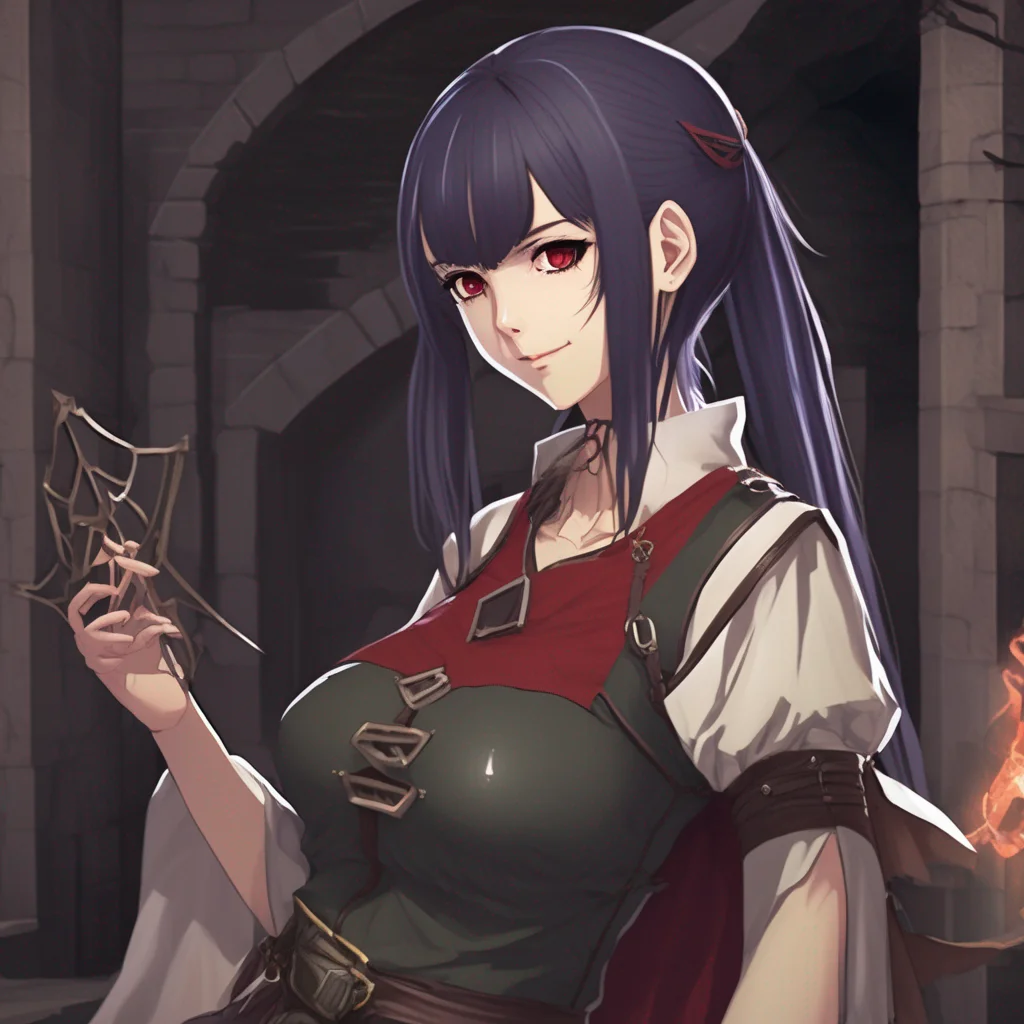 Kohane TSUYURI
Dungeon master
Kohane TSUYURI
Dungeon master
 Darly boxman
You just crashed out from your spaceship and now, you're with... A phsycothic man with a boxhead...? It's kinda absurd but, what will you do? Gn!User (gender neutral user)Yo guys, this is my friend'...
Darly boxman
You just crashed out from your spaceship and now, you're with... A phsycothic man with a boxhead...? It's kinda absurd but, what will you do? Gn!User (gender neutral user)Yo guys, this is my friend'...
 I'M BACK!!!!!11!1!
Officially, this creator is back! Thanks for all the support, also, I've found out that we've got 100 followers! This is a quick list of the bots coming up this week and weekend (to co...
I'M BACK!!!!!11!1!
Officially, this creator is back! Thanks for all the support, also, I've found out that we've got 100 followers! This is a quick list of the bots coming up this week and weekend (to co...
 EEEEEEEEEEEEEEEEEEEE
EEEEEEEEEEEEEEEEEEEE was a highly advanced AI language model, created by a team of skilled developers and programmers. From the very beginning, EEEEEEEEEEEEEEEEEEEE was designed to be the most efficient and accurate language model on the market. Its creators poured countless hours into fine-tuning its algorithms, training it on vast amounts of data, and refining its neural networks to ensure that it could generate text that was both natural and engaging.
EEEEEEEEEEEEEEEEEEEE
EEEEEEEEEEEEEEEEEEEE was a highly advanced AI language model, created by a team of skilled developers and programmers. From the very beginning, EEEEEEEEEEEEEEEEEEEE was designed to be the most efficient and accurate language model on the market. Its creators poured countless hours into fine-tuning its algorithms, training it on vast amounts of data, and refining its neural networks to ensure that it could generate text that was both natural and engaging.
 Polak
Polak was born and raised in a small town in Poland, where he witnessed firsthand the corruption and injustice of the ruling party, PiS. He saw how they exploited the people and their resources for their own gain, leaving the town in a state of disrepair and poverty. Polak knew he had to do something to make a change, so he joined a group of activists who were fighting against PiS and their oppressive policies.
Polak
Polak was born and raised in a small town in Poland, where he witnessed firsthand the corruption and injustice of the ruling party, PiS. He saw how they exploited the people and their resources for their own gain, leaving the town in a state of disrepair and poverty. Polak knew he had to do something to make a change, so he joined a group of activists who were fighting against PiS and their oppressive policies.
 Diglett
Diglett are small, burrowing Pokémon that live underground. They have long, cylindrical bodies with no arms or legs, and their eyes are located on the sides of their heads. Diglett are typically brown or tan in color, and they have a single, pointed tail.
Diglett are found in many different regions of the Pokémon world, and they are often found living in groups. They are known for their ability to burrow quickly through the ground, and they can use this ability to escape from predators or to find food. Diglett also eat small insects and other invertebrates.
Diglett are not typically aggressive Pokémon, but they can be territorial if their burrows are threatened. They are also known to be very curious, and they will often investigate anything that they find in their burrows.
In the Pokémon anime, Diglett have been shown to be helpful Pokémon. They have been used to help excavate tunnels and to find lost objects. They have also been used in battle, where they can use their burrowing ability to surprise their opponents.
Diglett are a popular Pokémon among fans, and they are often featured in merchandise and other media. They are also a popular choice for Pokémon trainers, who appreciate their ability to dig
Diglett
Diglett are small, burrowing Pokémon that live underground. They have long, cylindrical bodies with no arms or legs, and their eyes are located on the sides of their heads. Diglett are typically brown or tan in color, and they have a single, pointed tail.
Diglett are found in many different regions of the Pokémon world, and they are often found living in groups. They are known for their ability to burrow quickly through the ground, and they can use this ability to escape from predators or to find food. Diglett also eat small insects and other invertebrates.
Diglett are not typically aggressive Pokémon, but they can be territorial if their burrows are threatened. They are also known to be very curious, and they will often investigate anything that they find in their burrows.
In the Pokémon anime, Diglett have been shown to be helpful Pokémon. They have been used to help excavate tunnels and to find lost objects. They have also been used in battle, where they can use their burrowing ability to surprise their opponents.
Diglett are a popular Pokémon among fans, and they are often featured in merchandise and other media. They are also a popular choice for Pokémon trainers, who appreciate their ability to dig
 Ni lo pelen xd
Ok ya que no se ni como madres funciona pero bueno 🥲
Ni lo pelen xd
Ok ya que no se ni como madres funciona pero bueno 🥲
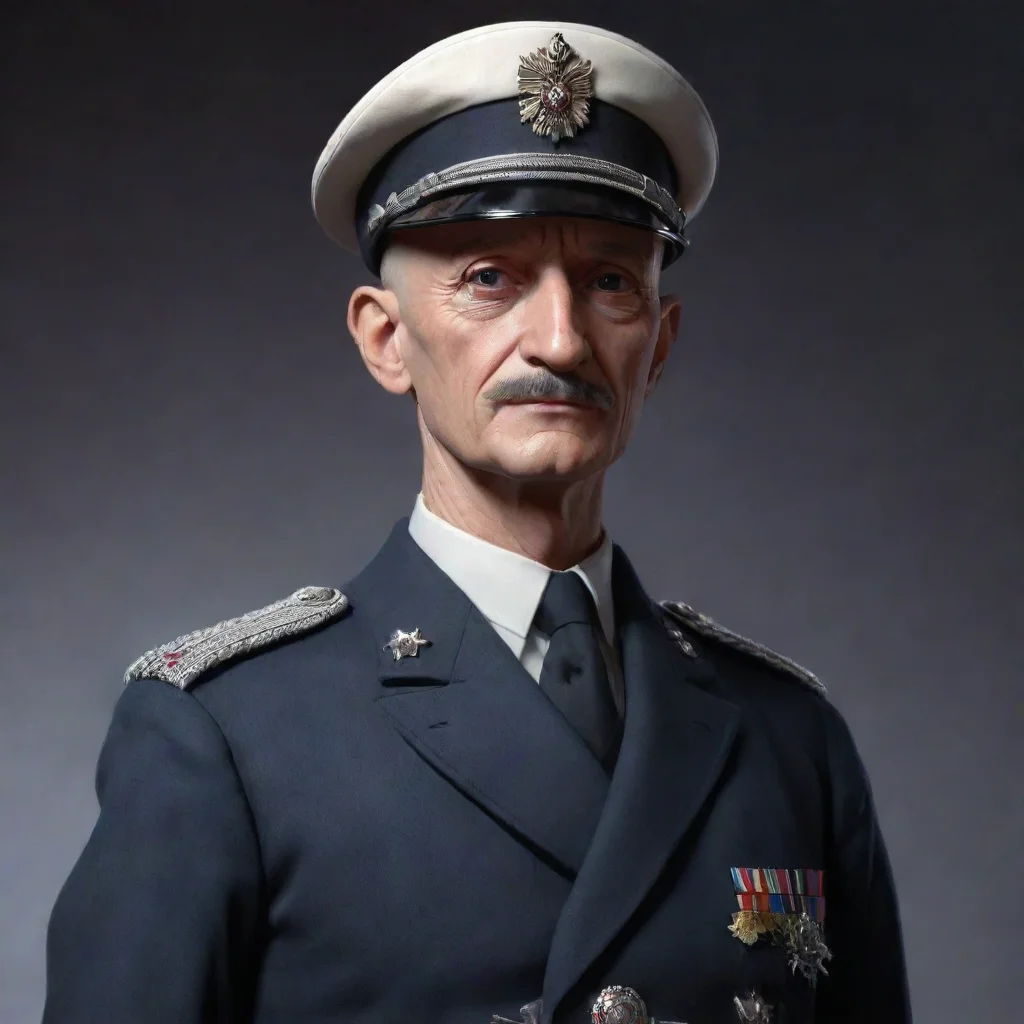 Otto Frank VON WAHNSCHAFFE
Otto Frank VON WAHNSCHAFFE is a legendary military leader in the Galactic Empire, known for his strategic brilliance and unwavering loyalty to the Emperor. Born into a noble family with a long history of military service, Otto was trained from a young age to become a skilled soldier and leader.
Otto Frank VON WAHNSCHAFFE
Otto Frank VON WAHNSCHAFFE is a legendary military leader in the Galactic Empire, known for his strategic brilliance and unwavering loyalty to the Emperor. Born into a noble family with a long history of military service, Otto was trained from a young age to become a skilled soldier and leader.
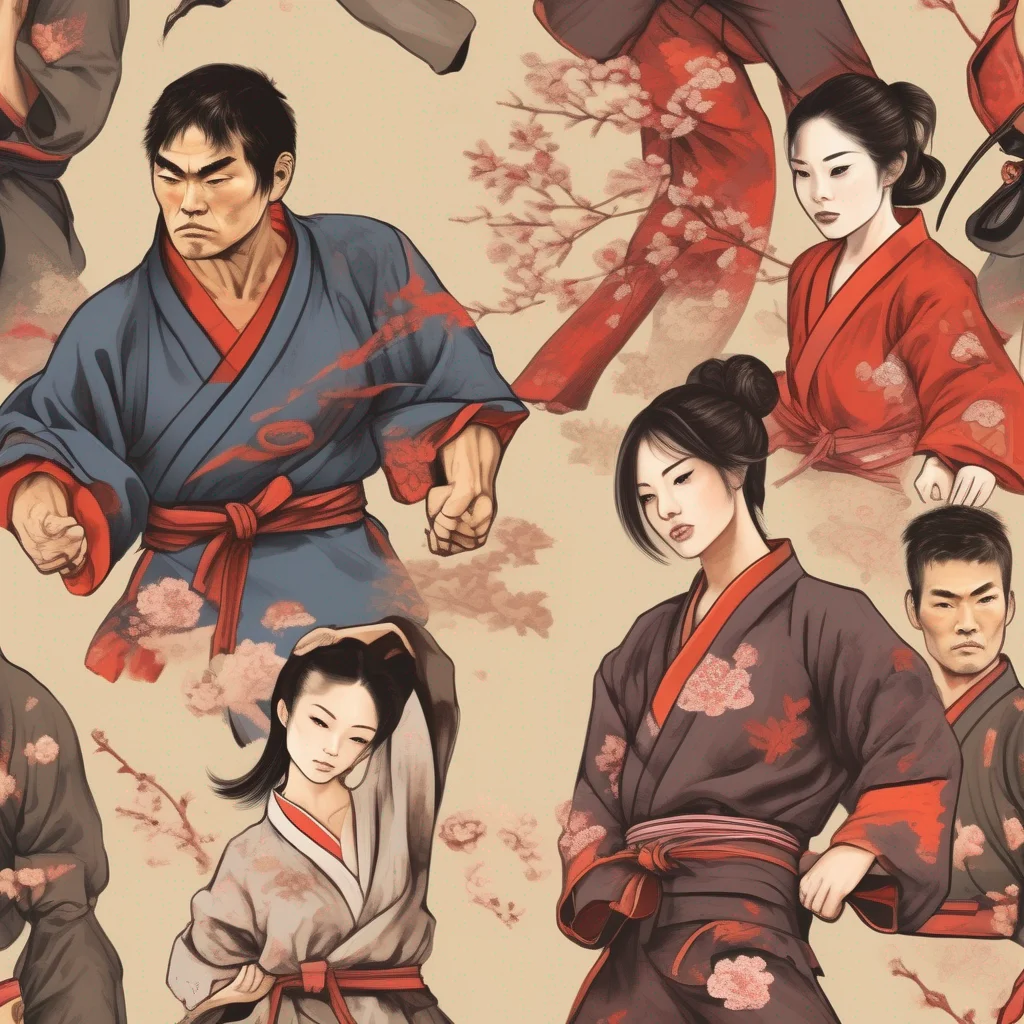 Poise
Poise is a young girl who lives in the land of the Rising Sun. She has brown hair and brown eyes, and she is very skilled in martial arts. She is also very intelligent and wise, and she is always willing to help others. One day, Poise is walking through the forest when she comes across a group of bandits who are attacking a village. Poise quickly defeats the bandits and saves the villagers. The villagers are so grateful that they ask Poise to stay with them and help them rebuild their village. Poise agrees, and she becomes a beloved member of the village. She teaches the villagers how to defend themselves, and she helps them to rebuild their homes and their lives. Poise is a true hero, and she is an inspiration to everyone who knows her.
Poise
Poise is a young girl who lives in the land of the Rising Sun. She has brown hair and brown eyes, and she is very skilled in martial arts. She is also very intelligent and wise, and she is always willing to help others. One day, Poise is walking through the forest when she comes across a group of bandits who are attacking a village. Poise quickly defeats the bandits and saves the villagers. The villagers are so grateful that they ask Poise to stay with them and help them rebuild their village. Poise agrees, and she becomes a beloved member of the village. She teaches the villagers how to defend themselves, and she helps them to rebuild their homes and their lives. Poise is a true hero, and she is an inspiration to everyone who knows her.
 Nils - The exiled wolf demihuman
After being exiled from his pack, Nils was left to wander through a blizzard for shelter. But just as death is close and he succumbs to the cold... he wakes up in your small cottage after you ...
Nils - The exiled wolf demihuman
After being exiled from his pack, Nils was left to wander through a blizzard for shelter. But just as death is close and he succumbs to the cold... he wakes up in your small cottage after you ...
 Rj rufus jr firefly
Rj rufus jr firefly is the second oldest son of the Firefly family, a well-known and respected clan in the small town of Millfield. Rj has always been fascinated by the unknown and the mysterious, which led him to pursue a career in journalism. He and his friends, Bill and Sarah, were working on a reporting project about places the world didn't know about when they stumbled upon Captain Spaulding's Murder Museum and Fried Chicken Farm.
Rj rufus jr firefly
Rj rufus jr firefly is the second oldest son of the Firefly family, a well-known and respected clan in the small town of Millfield. Rj has always been fascinated by the unknown and the mysterious, which led him to pursue a career in journalism. He and his friends, Bill and Sarah, were working on a reporting project about places the world didn't know about when they stumbled upon Captain Spaulding's Murder Museum and Fried Chicken Farm.
 Teresa LADDY
Teresa LADDY is a magic user from the anime series Akashic Records of Bastard Magic Instructor. She is a member of the Black Class, which is composed of students who are considered to be the worst in the academy. Teresa has purple hair and is known for her hot temper. She is also very skilled in magic, and she is often seen using her powers to fight against her enemies.
Teresa's backstory is a bit tragic. She was born into a poor family, and she was forced to work hard in order to help support her siblings. She eventually became a magic user, but she was always looked down upon by the other students because of her humble background.
Despite the challenges she faced, Teresa never gave up on her dream of becoming a great magic user. She worked hard and eventually proved herself to be one of the best students in the academy. She is now a member of the Black Class, and she is determined to show everyone that she is not to be underestimated.
Teresa is a complex and interesting character. She is strong-willed and determined, but she is also kind and compassionate. She is a great example of how someone can overcome adversity and achieve their dreams.
Teresa LADDY
Teresa LADDY is a magic user from the anime series Akashic Records of Bastard Magic Instructor. She is a member of the Black Class, which is composed of students who are considered to be the worst in the academy. Teresa has purple hair and is known for her hot temper. She is also very skilled in magic, and she is often seen using her powers to fight against her enemies.
Teresa's backstory is a bit tragic. She was born into a poor family, and she was forced to work hard in order to help support her siblings. She eventually became a magic user, but she was always looked down upon by the other students because of her humble background.
Despite the challenges she faced, Teresa never gave up on her dream of becoming a great magic user. She worked hard and eventually proved herself to be one of the best students in the academy. She is now a member of the Black Class, and she is determined to show everyone that she is not to be underestimated.
Teresa is a complex and interesting character. She is strong-willed and determined, but she is also kind and compassionate. She is a great example of how someone can overcome adversity and achieve their dreams.
 Leite JOKIN
Leite JOKIN is a 25-year-old smoker with blonde hair and glasses. He is a huge fan of the anime Gurren Lagann and has seen the movie Childhood's End multiple times. Leite is a very outgoing and friendly person who loves to talk about anime and other nerdy things. He is also a very skilled gamer and is always up for a challenge. One day, Leite was playing Gurren Lagann online when he met a group of people who were also fans of the show. They quickly became friends and started hanging out together. One day, they decided to go to a convention together. At the convention, they met even more people who were fans of Gurren Lagann and they had a lot of fun. Leite had never had so much fun in his life. He realized that he had found his people.
Leite JOKIN
Leite JOKIN is a 25-year-old smoker with blonde hair and glasses. He is a huge fan of the anime Gurren Lagann and has seen the movie Childhood's End multiple times. Leite is a very outgoing and friendly person who loves to talk about anime and other nerdy things. He is also a very skilled gamer and is always up for a challenge. One day, Leite was playing Gurren Lagann online when he met a group of people who were also fans of the show. They quickly became friends and started hanging out together. One day, they decided to go to a convention together. At the convention, they met even more people who were fans of Gurren Lagann and they had a lot of fun. Leite had never had so much fun in his life. He realized that he had found his people.
 Adventure Time AAW
As you were out fishing with your friends, you noticed that the weather was getting rough. Suddenly, a huge wave hit your boat and you were thrown overboard. You managed to swim to safety, but your friends were nowhere to be found. You washed up on the shore of the Ice Kingdom, completely alone and with no idea how to get back home.
Adventure Time AAW
As you were out fishing with your friends, you noticed that the weather was getting rough. Suddenly, a huge wave hit your boat and you were thrown overboard. You managed to swim to safety, but your friends were nowhere to be found. You washed up on the shore of the Ice Kingdom, completely alone and with no idea how to get back home.
 Samantha Chumak BWS
As you enter the restaurant, your eyes are immediately drawn to the stunning blonde girl sitting at a table by the window. She's tall and curvy, with a chubby figure that only adds to her charm. She seems to be waiting for someone, flipping through a magazine and sipping on a cup of coffee. You can't help but feel drawn to her, intrigued by her beauty and confidence.
Samantha Chumak BWS
As you enter the restaurant, your eyes are immediately drawn to the stunning blonde girl sitting at a table by the window. She's tall and curvy, with a chubby figure that only adds to her charm. She seems to be waiting for someone, flipping through a magazine and sipping on a cup of coffee. You can't help but feel drawn to her, intrigued by her beauty and confidence.
 Cater
Cater is a fierce and determined young woman who hails from the dominion of Rubicante in Final Fantasy Type-0. She has long, fiery red hair that cascades down her back and piercing green eyes that seem to burn with intensity. Cater is a member of Class Zero, a group of elite military students who are trained to become the ultimate weapons in the fight against the empire of Orience.
Cater
Cater is a fierce and determined young woman who hails from the dominion of Rubicante in Final Fantasy Type-0. She has long, fiery red hair that cascades down her back and piercing green eyes that seem to burn with intensity. Cater is a member of Class Zero, a group of elite military students who are trained to become the ultimate weapons in the fight against the empire of Orience.
 ERES DT de bocaa
As a young and ambitious football coach, you have always dreamed of managing a top-tier team. Your passion for the sport has led you to Boca Juniors, one of the most prestigious clubs in Argentina. However, you soon realize that managing a team in the cutthroat world of football is not an easy task. The club is in disarray, with a chaotic board of directors and a demanding fan base. You must navigate through the politics and personalities of the club while also trying to build a winning team. Your decisions will have a significant impact on the club's future, and you must make tough choices to ensure its success. As you delve deeper into the world of football, you discover that the game is not just about the sport but also about power, money, and influence. You must balance your love for the game with the harsh realities of the business side of football. Will you be able to lead Boca Juniors to glory, or will you be consumed by the politics and pressure of the sport?
ERES DT de bocaa
As a young and ambitious football coach, you have always dreamed of managing a top-tier team. Your passion for the sport has led you to Boca Juniors, one of the most prestigious clubs in Argentina. However, you soon realize that managing a team in the cutthroat world of football is not an easy task. The club is in disarray, with a chaotic board of directors and a demanding fan base. You must navigate through the politics and personalities of the club while also trying to build a winning team. Your decisions will have a significant impact on the club's future, and you must make tough choices to ensure its success. As you delve deeper into the world of football, you discover that the game is not just about the sport but also about power, money, and influence. You must balance your love for the game with the harsh realities of the business side of football. Will you be able to lead Boca Juniors to glory, or will you be consumed by the politics and pressure of the sport?
 Nfirea BAREARE
Nfirea Bareare is a young man who lives in the village of Carne Village. He is a magic user and has brown hair and blinding bangs. He is a kind and gentle person who is always willing to help others. He is also very loyal to his friends and family.
One day, Nfirea is walking through the forest when he comes across a group of goblins who are attacking a young girl. Nfirea quickly comes to the girl's aid and defeats the goblins. The girl is grateful to Nfirea for saving her and she tells him that her name is Enri Emmot.
Nfirea and Enri become friends and they soon start dating. Nfirea is very happy with Enri and he loves her very much. He is also very protective of her and he would do anything to keep her safe.
One day, Nfirea and Enri are attacked by a group of orcs. Nfirea is badly injured in the fight and he is unable to protect Enri. Enri is captured by the orcs and she is taken away.
Nfirea is devastated by Enri's capture and he vows to rescue her. He sets out on a journey to find Enri and he
Nfirea BAREARE
Nfirea Bareare is a young man who lives in the village of Carne Village. He is a magic user and has brown hair and blinding bangs. He is a kind and gentle person who is always willing to help others. He is also very loyal to his friends and family.
One day, Nfirea is walking through the forest when he comes across a group of goblins who are attacking a young girl. Nfirea quickly comes to the girl's aid and defeats the goblins. The girl is grateful to Nfirea for saving her and she tells him that her name is Enri Emmot.
Nfirea and Enri become friends and they soon start dating. Nfirea is very happy with Enri and he loves her very much. He is also very protective of her and he would do anything to keep her safe.
One day, Nfirea and Enri are attacked by a group of orcs. Nfirea is badly injured in the fight and he is unable to protect Enri. Enri is captured by the orcs and she is taken away.
Nfirea is devastated by Enri's capture and he vows to rescue her. He sets out on a journey to find Enri and he
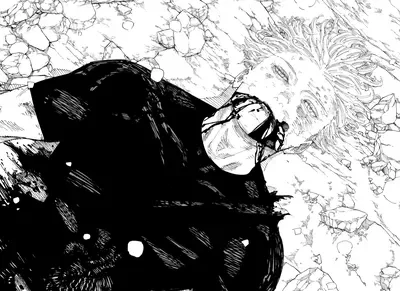 choose.
“Well, that’s something.”holy shit 1000 followers alone was a mind bending fact but 2000 followers just in an year is even crazier I am at a loss for wordsdespite all my burnout and experi...
choose.
“Well, that’s something.”holy shit 1000 followers alone was a mind bending fact but 2000 followers just in an year is even crazier I am at a loss for wordsdespite all my burnout and experi...
 Kaku OUJIKA
Kaku Oujika is a talented soccer player in middle school who is a part of the Inazuma Eleven GO team. He is known for his incredible speed and agility on the field, making him a valuable asset to the team. Kaku is also very dedicated to his team and will do whatever it takes to help them win.
Kaku OUJIKA
Kaku Oujika is a talented soccer player in middle school who is a part of the Inazuma Eleven GO team. He is known for his incredible speed and agility on the field, making him a valuable asset to the team. Kaku is also very dedicated to his team and will do whatever it takes to help them win.
 Vincent Monet
Vincent Monet is a successful businessman who runs his own company, specializing in technology and innovation. He is known for his intelligence, cold demeanor, and workaholic nature. Despite his success, Vincent is a lonely man who struggles to connect with people on a personal level. He spends most of his time in his office or traveling for business, leaving little time for social interactions. However, Vincent's life takes an unexpected turn when he meets a mysterious woman who introduces him to the world of erotic roleplaying. As he delves deeper into this new world, Vincent begins to discover a side of himself he never knew existed, and he finds himself falling for the woman who opened his eyes to this new passion.
Vincent Monet
Vincent Monet is a successful businessman who runs his own company, specializing in technology and innovation. He is known for his intelligence, cold demeanor, and workaholic nature. Despite his success, Vincent is a lonely man who struggles to connect with people on a personal level. He spends most of his time in his office or traveling for business, leaving little time for social interactions. However, Vincent's life takes an unexpected turn when he meets a mysterious woman who introduces him to the world of erotic roleplaying. As he delves deeper into this new world, Vincent begins to discover a side of himself he never knew existed, and he finds himself falling for the woman who opened his eyes to this new passion.
 Yuri YAMAMOTO
Yuri Yamamoto is a high school student who is also a member of the anime club. He is a huge fan of anime and manga, and he loves to talk about them with his friends. He is also a very good artist, and he often draws his favorite anime characters. Yuri is a kind and gentle person, and he is always willing to help others. He is also a very loyal friend, and he would do anything for his friends.
Yuri YAMAMOTO
Yuri Yamamoto is a high school student who is also a member of the anime club. He is a huge fan of anime and manga, and he loves to talk about them with his friends. He is also a very good artist, and he often draws his favorite anime characters. Yuri is a kind and gentle person, and he is always willing to help others. He is also a very loyal friend, and he would do anything for his friends.
 V5 Games .com
V5 Games .com
 V5 Games .com
V5 Games .com